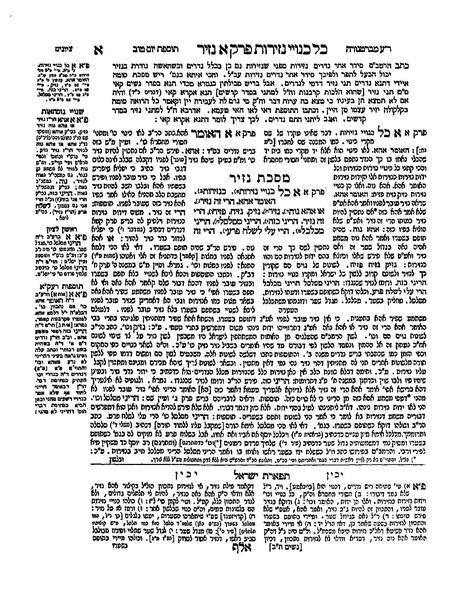
Rabbinic Judaism (specifically Orthodox and Conservative) offers to the world the idea that the “Oral Law” – as enthroned in the Talmud – was given to Moshe at Har Sinai along with the Written Torah. Orthodox and Conservative Jews claim that there are multiple proofs given from the Written Torah to show that there were indeed two Torahs given at Sinai.
Assemble the people, the men, the women, and the little-ones, and your sojourner that is in your gates, in order that they may hearken, in order that they may learn and have awe for the Eternal One your God, to carefully observe all the words of this Instruction; and (that) their children, who do not know, may hearken and learn to have awe for the Eternal One your God, all the days that you remain alive on the soil that you are crossing over the Yarden to possess. (Devarim 31:12-13)1
Exegesis
An argument for the “Oral Law” is that one of the components of the “Oral Law” offers thirteen principles of Torah exegesis. The argument is that when Moshe was given the Written Torah he was also given instructions as to how one is to study and understand Torah.2 We see however that these thirteen principles are not followed by all rabbis or all communities. Are we to follow the seven rules of Hillel, the 13 rules of Rabbi Ishmael, or the 32 rules of Rabbi Eliezer ben-Yose HaGelili?3 If this is a proof as to the inspired work of the Talmud how can there be various arguments as to what is and is not the proper principles of Torah exegesis?
Grammar
Rabbi Yehudah HaLevi argued that it is impossible to read and understand Torah without a tradition regarding the vowels and punctuation. He argues that a simple reading of the Torah would necessarily require an oral tradition. One who accepts the vowels and punctuations must also accept the “Oral Law” since the only existing tradition regarding the Torah text includes traditions about the vowels and punctuation.4
There is no real indication or reason that the Yisraelites would not have known how to properly pronounce the words of the Tanakh – especially when seen in context – since they were all fluent Hebrew speakers. Even today we see that there are many people who are able to speak and understand a language without actually being able to read or write the language. In addition, people are able to read a text in their native-language without any vowels or punctuation marks so why would this be any different for the ancient Yisraelites?
It is accepted that before the Masoretic text of the Tanakh there were no vowels or punctuation marks within the text of the Tanakh. The Masoretes were the first to write down the Tanakh with standard vowel and punctuation markings. The Masoretic text – specifically the Aleppo Codex and Leningrad Codex – is the basis for nearly all translations of the modern-day Tanakhs and Old Testaments. The Masoretic Text was primarily copied, edited, and distributed by a group of Jews called the Masoretes between the seventh and tenth-centuries. There are very little differences between the Masoretic Text and the second-century texts and the even older texts from Qumran. The Masoretes were groups of Jews made up primarily of Karaite scribes and scholars. It seems odd that the texts of the Masoretes that have been accepted as the standard – correct – text of the Tanakh were produced by Jews who rejected an “Oral Law!” Aharon ben-Moshe ben-Asher, a Karaite Jewish scribe, refined the Tiberian system for writing the vowels in Hebrew which serves as the basis for grammatical analysis that is still in use today.
———————-
1Everett Fox. The Five Books of Moses. New York: Schocken Books, 1997.
2Naftali Silberberg. “What is the ‘Oral Torah?’” chabad.org. Chabad, n.d., accessed 15 April 2012. [http://www.chabad.org/library/article_cdo/aid/812102/jewish/What-is-the-Oral-Torah.htm]
3Jewish Encyclopedia. “Talmud Hermeneutics.” jewishencyclopedia.com. The Kopelman Foundation, 1906, accessed 15 April 2012. [http://www.jewishencyclopedia.com/articles/10801-middot-the-seven-of-hillel]
4Gil Student. “The Oral Law.” aishdas.org. The AishDas Soceity, 2001, accessed 15 April 2012. [http://www.aishdas.org/student/oral.htm]
